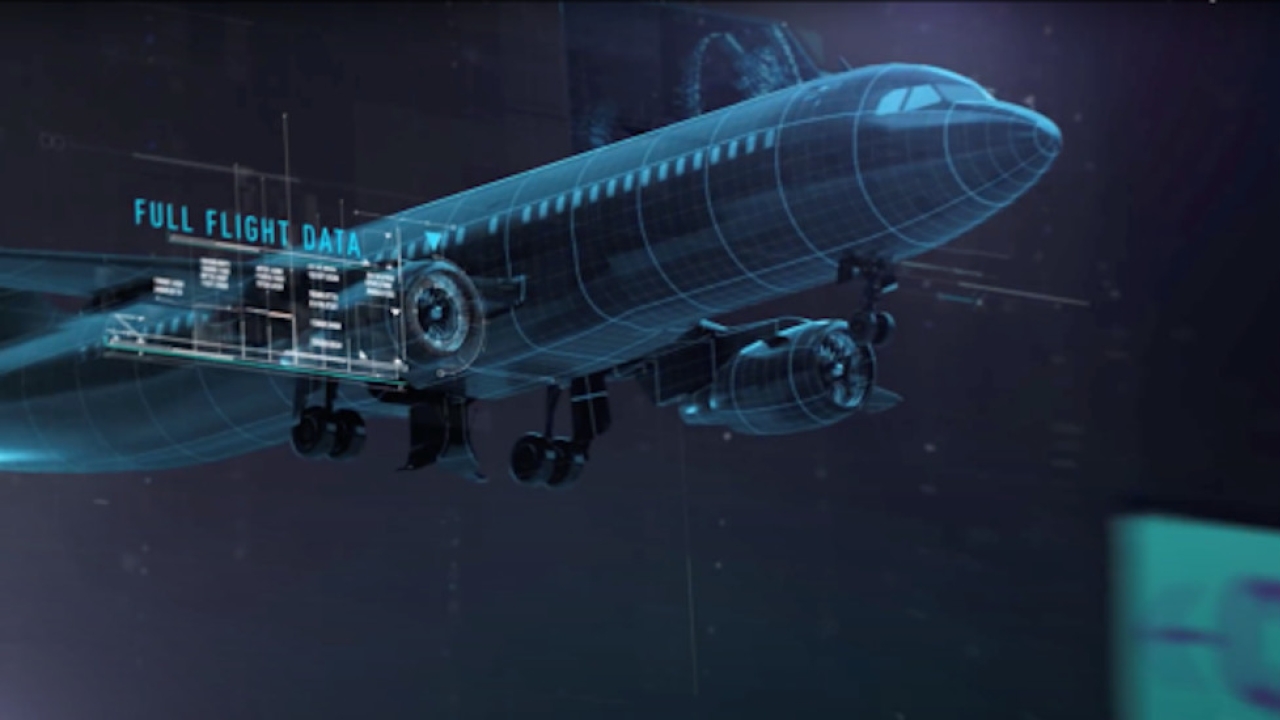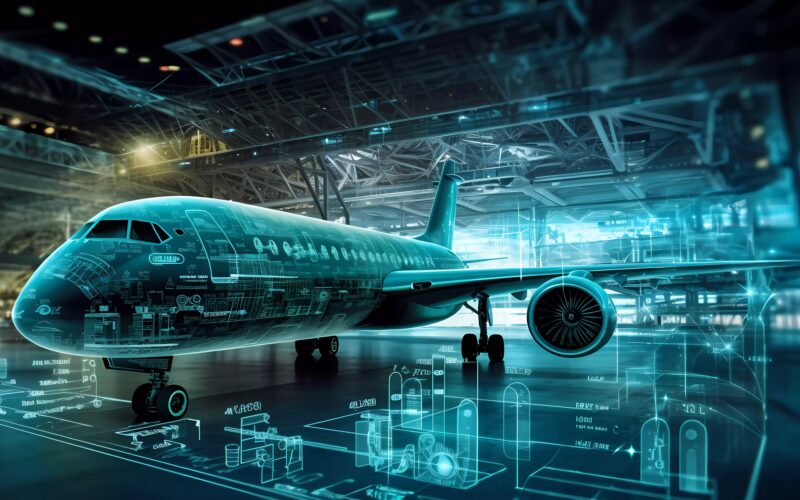
The Role of AI in Aviation Technology: Transforming Flight Operations and Maintenance-As the aviation industry continues to evolve, the integration of artificial intelligence (AI) is becoming increasingly pivotal. From enhancing flight operations to streamlining maintenance processes, AI is transforming aviation technology in remarkable ways. This article explores the various roles AI plays in aviation, illustrating how it enhances safety, efficiency, and overall passenger experience.
1. Improving Flight Operations

AI is revolutionizing flight operations by providing real-time data analysis and decision-making support. Advanced algorithms can analyze vast amounts of data from various sources—such as weather patterns, air traffic, and aircraft performance—to optimize flight paths. This capability not only helps airlines reduce fuel consumption but also minimizes delays and enhances safety.
For instance, AI systems can predict potential weather disruptions and suggest alternative routes, allowing pilots to avoid turbulence and severe weather conditions. This proactive approach to flight management is crucial in ensuring smoother and safer journeys for passengers.
2. Predictive Maintenance
One of the most significant applications of AI in aviation technology is predictive maintenance. Traditional maintenance schedules often rely on fixed intervals, which can lead to unnecessary downtime or, conversely, missed opportunities for maintenance. AI addresses this issue by utilizing machine learning algorithms to analyze data from aircraft sensors and maintenance logs.
By identifying patterns and anomalies, AI can predict when a component is likely to fail or require servicing. This predictive capability allows airlines to perform maintenance only when necessary, significantly reducing costs and increasing aircraft availability. As a result, airlines can ensure that their fleets are in optimal condition while enhancing safety.
3. Enhancing Safety Protocols
Safety is paramount in the aviation industry, and AI is playing a critical role in enhancing safety protocols. Advanced AI systems can monitor flight data in real-time, identifying potential safety issues before they escalate. For example, AI can analyze cockpit conversations, pilot actions, and flight parameters to detect signs of fatigue or inattention.
Additionally, AI-driven simulations are being used for pilot training, providing immersive scenarios that prepare pilots for various emergencies. These simulations can replicate real-world conditions, allowing pilots to practice decision-making under pressure. By improving training programs, AI helps create a safer environment for both pilots and passengers. (Read More: GOC Technology’s Role in the Evolution of Autonomous Vehicles in 2024)
4. Streamlining Ground Operations
Ground operations are crucial for the overall efficiency of flight schedules. AI is transforming these operations by optimizing baggage handling, fueling, and maintenance checks. For instance, AI algorithms can analyze historical data to predict peak times for check-in and boarding, allowing airlines to allocate resources more effectively.
Moreover, AI can enhance baggage tracking systems, ensuring that luggage is efficiently loaded and unloaded. By minimizing delays and improving coordination between ground crews, AI technology contributes to a smoother travel experience for passengers. (Read More: Top 10 Technology and Innovation Transforming the Automotive Industry)
5. Personalized Passenger Experience

In addition to operational improvements, AI is enhancing the passenger experience through personalized services. Airlines are leveraging AI to analyze customer data and preferences, allowing them to offer tailored recommendations for flights, accommodations, and in-flight services.
For example, AI chatbots can assist passengers with booking inquiries, provide real-time flight updates, and even help with luggage tracking. These personalized interactions not only improve customer satisfaction but also foster loyalty by making passengers feel valued.
6. Fuel Efficiency and Environmental Impact
The aviation industry is under increasing pressure to reduce its environmental impact, and AI is helping to address this challenge. By optimizing flight paths and improving fuel efficiency, AI contributes to lower emissions and reduced operational costs. AI systems can calculate the most fuel-efficient routes, taking into account factors such as wind patterns and aircraft weight.
Furthermore, AI can assist in the development of alternative fuels and more efficient engine designs. As the industry moves toward sustainability, AI will play a key role in helping airlines meet environmental regulations and reduce their carbon footprint.
7. Data Security and Cybersecurity
With the rise of AI in aviation technology comes the need for robust data security measures. AI can be utilized to enhance cybersecurity protocols by identifying potential threats and vulnerabilities within aviation systems. Machine learning algorithms can analyze network traffic and detect unusual patterns, alerting operators to potential cyberattacks before they can cause significant harm.
As aviation technology becomes more interconnected, ensuring data security will be essential for maintaining trust and safety in the industry. (Read More: Exploring the Innovations Behind Laizan Network Technology in Modern Enterprises)
8. Future Prospects of AI in Aviation

The potential for AI in aviation technology is vast, and as the technology continues to evolve, we can expect even more innovative applications. Future developments may include fully autonomous aircraft, advanced air traffic management systems, and further integration of AI in passenger services.
These advancements promise to create a more efficient, safe, and enjoyable flying experience. However, they also require careful consideration of regulatory, ethical, and safety implications to ensure that the benefits of AI are fully realized.
Conclusion article The Role of AI in Aviation Technology: Transforming Flight Operations and Maintenance
AI is undeniably transforming aviation technology, enhancing flight operations and maintenance in unprecedented ways. From predictive maintenance to personalized passenger experiences, AI is making air travel safer, more efficient, and more enjoyable. As the aviation industry continues to embrace these innovations, travelers can look forward to a future where AI plays an integral role in their flying experience. The journey is just beginning, and the skies are becoming smarter and safer with each technological advancement!




